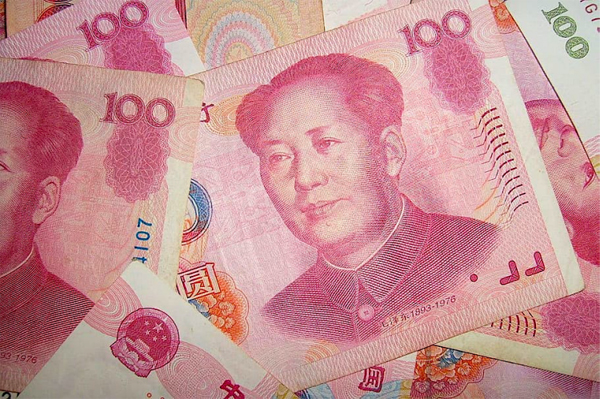China’s fast ascension to the world’s second-biggest economy has provided a new metric by which to describe its miraculous development. Few big foreign enterprises aren’t attempting to reach China’s burgeoning middle class, but the mere size of the investment potential here makes it somewhat of a minefield. Language and cultural barriers put pressure on large and small companies alike as they strive to capture market share, but I would argue that some of the differences most jarring to foreigners are driven by China’s economic landscape. Here are three ways the economy affects Chinese business practices.

Cost is King
Fierce competition, part and parcel of today’s globalized economy, is arguably even more prevalent in China’s dog-eat-dog marketplace. Rival companies, often with very little to differentiate their products, find themselves competing solely on cost for the attention of the country’s notoriously thrifty consumers.
This pressure crosses international borders. Foreign suppliers of consumer products and electronics are particularly susceptible to downward pressure on their prices in order to keep or grow their market share in China. Such razor-thin margins means cost-cutting is one of the highest priorities for many businesses here.
When working with Chinese suppliers, foreign brands will find nearly every negotiation starts out with price, fees and cost figures as opposed to timetables, delivery arrangements and promises of quality. Pervasive cost-cutting practices can rear their ugly heads throughout a businesses’s architecture, including in the realms of customer service, materials, quality control, marketing and innovation. Nearly everything takes a back seat to saving money as companies compete on volume, not quality.
I once heard a story about a foreign executive who was visiting his company’s electronics factory near Shanghai. After going to the toilet, he discovered — much too late — that the general manager had removed the toilet paper from all the stalls in order to save money. After eventually reaching the factory’s receptionist by phone, the executive was delivered a small packet of tissues by a sheepish employee. Needless to say, a tense meeting about cost-cutting versus sacrifices in quality was held later that day.
If it Ain’t Broke, Copy it!
Much has been made of China’s rampant Intellectual Property violations. Unfortunately, many Chinese copycat companies find they can make a good profit by simply replicating other successful businesses. Decades after China’s “door was opened” to the outside world, much of the economy is still involved in non-innovative import substitution manufacturing.
Luxury fashion brands, such as Burberry, Gucci, Prada, Chanel and Louis Vuitton, as well as electronics and even auto manufacturers, have all been the victims of blatant Chinese copying over the years. Such a business environment naturally spurs a race to the bottom (see above) and leaves little incentive for innovation; why invest in R&D if the fruits of your labor will most likely be stolen?
Some companies are still making do by manufacturing at a higher volume and with cheaper materials (and therefore a lower price) for the same products and services foreign brands have supplied their home markets with for years. Until the average standard of living begins to reach the level of those in developed economies, there’s little reason for Chinese companies to do anything other than produce massive quantities of cheap, low quality goods, still often preferred by Chinese shoppers.
In a business environment where it’s easy to imitate a large brand’s strategy and product line in order to grab a sliver of the ever-expanding consumer pie, only the most idealistic (and well funded) of entrepreneurs are driven to bring something truly fresh to the marketplace.
Expendable Staff
Another business practice that seems dictated by laws of economics is the treatment of workers at Chinese companies. Some say Confucian hierarchical traditions are to blame, but I venture that the massive manpower pool in China forces wages down and working hours up for anyone. Indeed, many foreigners feel pretty awkward when, upon their first assignment at a local company, they discover they make exponentially more money and work far fewer hours than their local colleagues.
The harsh (to the Western eye, at least) conditions that the majority of natives work under are indicative of China’s continued (but questionable) status as a developing country, many claim. The labor law of 2008 did much to elevate workers’ rights at the time, but recent grumblings about the so-called “996” workday have sparked little actual change.
As in all sectors of society, the balance of power between workers and management is clearly tilted towards those at the top. And while there are perhaps more workers’ strikes than you might imagine in China, on the whole, the vast ranks of underpaid and overworked employees toe the line and hold up the status quo.
To sum up, Chinese businesses practices are a paradigm for modern China; money rules, copycats abound and people are expendable.
Warning:The use of any news and articles published on eChinacities.com without written permission from eChinacities.com constitutes copyright infringement, and legal action can be taken.
Keywords: Chinese business practices
All comments are subject to moderation by eChinacities.com staff. Because we wish to encourage healthy and productive dialogue we ask that all comments remain polite, free of profanity or name calling, and relevant to the original post and subsequent discussion. Comments will not be deleted because of the viewpoints they express, only if the mode of expression itself is inappropriate.
Please login to add a comment. Click here to login immediately.